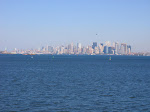The workshop, for the writer, is the one place where your work will get the serious attention that so few find in their every day lives. It is not because our friends, those people in our immediate circle, are stupid or ignorant. But rather, they are not versed in the process or processes that a writer goes through with one piece, one essay, one book. It is disheartening when your friend, who is not a writer, reads an essay and tells you how much they enjoyed your story. It is semantics, but an important distinction for a writer. It's like telling a sculptor you found his picture beautiful. So, the workshop becomes crucial to your understanding your process, and the validation that your process is not unique to a writer's life.
The first day is always full of anticipation and hope. It is much like the first day of school where everyone gathers with no history or baggage from the year before. Each encounter, this first day, is each of our attempts to assess the other person. It's just that in a workshop the usual measuring sticks are a tad different than in any other social environment. First, assume that all of us know we are odd, eccentric, and full of our own quirks--the very things that may set us apart in our "normal" lives. Here, these oddities are about as important as whether or not you're wearing tennis sneakers or sandals. The normal social niceties are cast aside as a way to judge since, again, we are all odd, in our own ways. Yes, there are those that are really odd, bordering on crazy, but they tend to crop up more among the poets than among fiction writers. I think this is because fiction writers are better at pretending to be "normal," since so much of what we do is observe our lives around us, which becomes impossible if we are drawing unwanted attention to ourselves. See my point? Poets, on the other hand, well, they are different for so many reasons.
Robert Bausch is our leader, the one who has published enough books to warrant the title of "teacher." And let me say, he is terrific. He is everything you would want in a workshop leader: funny, great stories, great writer, giving, and caring. He's not there for ego masturbation. He seems to like teaching, and therefore likes his students. During my MFA program, I was fortunate enough to work with great writers much like Bob Bausch. That must account for why I'm still plugging away, doing this thing that is economically so unrewarding. Anyway, he picked my chapter, the 1st chapter of my finished novel, as one of the first pieces to discuss. This is not a good sign, usually. See, the temperature of the room hasn't been taken, so you never know if the group is going to be constructive in their criticisms, or simply critical. And much like any other social milieu, well, chemistry is a big part of which rooms are constructive versus destructive.
Well, let me say I survived my workshop. And it was lovely to hear everyone say such complimentary things about my work. I've been doing this a long time, but I'm still waiting for that one person to tell me that I shouldn't be writing since I have zero talent, even if the slow progress of what I've accomplished, thus far, tells me otherwise. Yes, it has been tediously slow, my progress.
Now, in these rooms, each of us are jockeying for a place in this mental hierarchy of who is the really good writer versus a writer. See, this will determine who gets invited quickly to sit with a group at lunch, get invited out to dinner, etc. And much like high school, once everyone has read your work, the hierarchy quickly gets established. Those who reign are those with the most talent. It's funny how that happens. You can always tell where you stand by the comments on your manuscript. The writer that I found most promising wrote me a note telling me how much he loved my work and book, and how we should keep in touch to see how we are progressing. See how this works?
The rest of the day is filled with craft talks given by a panel of writers, who are here teaching. This conference has drawn some really great writers. You do understand that you are chosen to attend based on your work, not simply because you've applied. I love hearing how other writers do it--this thing that is so elusive, mysterious, vexing, and transcendent. It is more than half the reason why I come to these events. It's getting that affirmation that your process that can, sometimes, drive you witless is, in fact, quite common to every other writers' process whether you have one book or 20.
The day finished off with a panel of Pan African writers. This year's theme of The Aspen Writers' Conference was Africa. The highlight for me had to have been to hear Wole Soyinka, the Nobel Laureate, speak about his work and his activism. He looks like in his pictures, his hair a sculpture of shocking white. His voice had that lyrical lilt of someone, whose colonial power had been Great Britain. And he was passionate in a quiet, thoughtful way. The most striking thing he said was that the Africa of today, the Africa of beauty, poverty, disease, and genocide is not his Africa. His Africa has yet to materialize since everyone else in the world always has claims to Africa--its psyche, history, resources, people, and image.
His words made me reflect on this notion of how the world claims an entire continent and how complicit we are in all of this.
Monday, June 25, 2007
Subscribe to:
Post Comments (Atom)




No comments:
Post a Comment